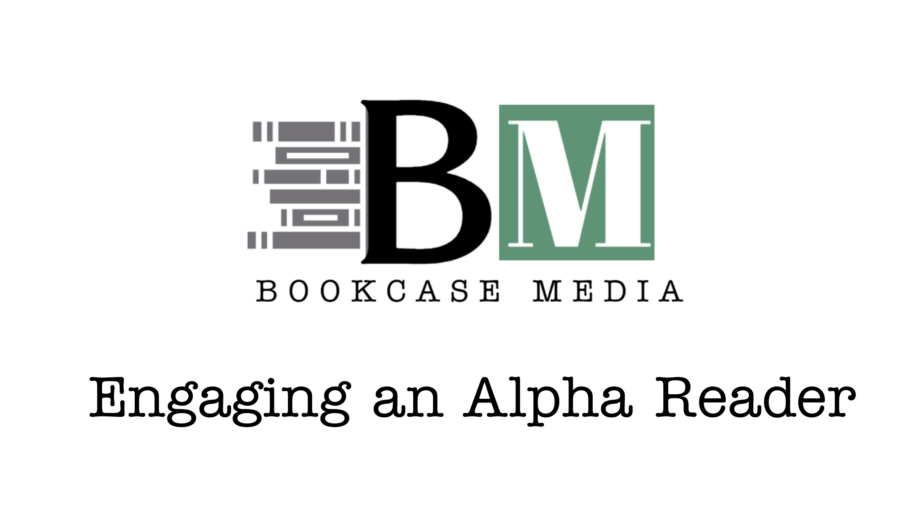Why would you engage an alpha reader? What are the benefits of partnering with someone as you are writing your first draft of a book. Some of the reasons are really simple.
First there is Immediate Feedback. Alpha readers can offer quick and immediate feedback on your work. This can be valuable for identifying strengths and weaknesses in your story, characters, and overall plot structure. All of this can help before you go into first round of edits.
Next engaging and Alpha brings a Fresh Perspective. Since alpha readers are usually the first individuals to read your manuscript, they bring a fresh perspective. This can help you gauge whether your story is engaging and relatable to someone who hasn’t been immersed in its development.
Somes what we imagine happening with our characters doesn’t always translate from our head to our words. An alpha reader can help with assessing Characters and Relationship. In romance novels, the dynamics between characters and the development of relationships are crucial. Alpha readers can provide insight into whether the romantic elements are convincing, authentic, and emotionally resonant.
One of the biggest benefits of an Alpha Reader is the ability Identifying Plot Holes and Inconsistencies. Alpha readers can help spot plot holes, inconsistencies, or areas where the story may not flow smoothly. Their input can be instrumental in refining the plot and ensuring a more cohesive narrative. Possible help to avoid lengthy rewrites. Early Course Correction. If there are significant issues or concerns raised by alpha readers, you can make necessary changes early in the writing process. This can save time and effort compared to making major revisions later in the editing stage.
Making sure an Alpha Reader is experienced in your chosen genre and even sub-genre can provide a Target Audience Reaction. Alpha readers can represent your target audience, and their reactions can help you gauge how well your romance novel resonates with the demographic you’re aiming to captivate.
There is the added benefit of Motivation and Encouragement. Positive feedback from alpha readers can boost the author’s confidence and motivation to continue working on the manuscript. Knowing what is working well can be as important as identifying areas for improvement
While alpha readers can provide valuable feedback on your manuscript, they typically serve a different purpose than content or developmental editors. An alpha reader is usually someone who reads your work in its early stages, providing feedback from a reader’s perspective. On the other hand, a content/developmental editor is a professional who specializes in evaluating the overall structure, plot, character development, pacing, and thematic elements of your manuscript, providing specific guidance to enhance these aspects.
Here are some key differences:
1. **Perspective:**
– **Alpha Reader:** Offers feedback as an early reader, representing the target audience. Focuses on personal reactions, emotions, and general impressions.
– **Content/Developmental Editor:** Provides a professional, analytical perspective on the manuscript’s structure, plot, character arcs, and other developmental elements. Offers specific suggestions for improvement.
2. **Scope of Feedback:**
– **Alpha Reader:** May focus on overall enjoyment, emotional impact, and the general flow of the story. Feedback may vary based on personal preferences.
– **Content/Developmental Editor:** Provides detailed feedback on plot coherence, character consistency, pacing, dialogue, and thematic elements. Identifies areas that need improvement and suggests strategies for enhancement.
3. **Professional Expertise:**
– **Alpha Reader:** Typically, an enthusiastic reader without professional editing experience. Offers insights based on personal reading experiences.
– **Content/Developmental Editor:** Possesses professional editing skills and experience. Understands the conventions and expectations of the publishing industry, providing targeted and constructive feedback.
4. **Stage of Manuscript:**
– **Alpha Reader:** Engages with the manuscript in its early stages, often before it is polished or revised extensively.
– **Content/Developmental Editor:** Works with a more refined manuscript, offering guidance to improve its overall quality before submission or publication.
Authors can choose to engage alpha readers at various stages of the writing process, and the timing often depends on personal preference and the author’s workflow. It’s important for authors to communicate their expectations to alpha readers and be open to diverse opinions. While alpha readers can provide valuable insights, their feedback is subjective, and authors should consider multiple perspectives. Also, authors should be aware that alpha readers may not have professional editing experience, so their feedback may focus more on the emotional and reader experience aspects of the manuscript. If you are foregoing a content editor for an Alpha Reader, it can be a cheaper alternative, but it is important to vet and make sure you are hiring someone knowledgeable in your area of writing.
